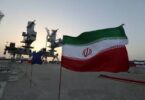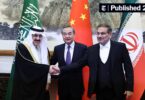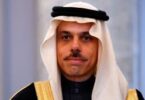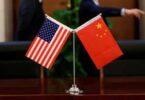A number of important agreements and memoranda of understanding were signed in the China visit of Prime Minister Imran Khan. Noteworthy agreements included up-gradation and dualisation of Peshawar-Karachi railway line ML-1, setting up Rashakai jont venture special economic zone, second phase of free trade agreement and China-Pakistan economic and technical cooperation.
Addressing Pak-China Trade and Investment Forum, Prime Minister claimed that his government has improved the ease of doing business indicator. And with Chinese technological assistance manifold increase in agriculture productivity can be achieved. No doubt Pakistan’s ranking in the World Bank Ease of Doing Business index 2019 has improved from 147th to 136th but it is still far below other countries of South Asia in the list of 190 countries. Vietnam stands at 69th and Thailand at 27th position. The country slipped to the lower rungs of Ease of Doing Business ladder because of the highest electricity and gas tariffs, complex and regressive taxation structure and above all corrupt practices of ruling political elite and top bureaucracy. A news report in a leading English daily newspaper revealed the other day that two third field offices of Inland Revenue Services Department failed to maintain income tax collection at the previous year level. Despite the loud announcement of the Prime Minister to carry out reforms in the Federal Board of Revenue the tax collection machinery is sluggish in the collection of direct taxes. The revenue shortfall will be then met by hiking the rates of indirect taxes which will further deteriorate the economic environment. The Prime Minister has promised tax holiday to the Chinese investors which alone does not suffice to improve the economic environment until it is buttressed with lowering the prices of energy inputs and import duty on capital goods. The hollow rhetoric of painting Pakistan’s economic environment as investment heaven by former Planning Minister Ahsan Iqbal did not stop the fast downturn in foreign direct investment in the previous government. Nor it will do any wonder in the present one.
Second phase of free trade agreement envisage zero duty on exports to China which will make 313 products cheaper in the Chinese market. But will Pakistani value added products compete with identical products from South Asian countries to which duty free access has been already allowed? If Pakistan’s export products cannot compete in quality with ones from ASEAN countries then bulk of the exports will comprise primary commodities like rice, wheat and citrus fruits.
Implementation of ML-1 project will give big boost to inland transportation of passengers and goods. Most of small and big bridges on the railway track have outlived their utility and are risky for rail traffic. The project will contribute in big way to railway system modernization. Setting up of Rashakai special economic zone will help improve the export base of the country. Likewise, Chinese assistance in improving the technological base can give impetus to the second wave of industriaisation which remained stagnant after the implementation of disastrous policy of nationalisation of first PPP government in 1970s.
Assistance in modernization of agriculture sector will bring the desired results only when short terms strategies and long term plans for water conservation are implemented to substantially expand the areas under cultivation. Hopefully, the present government will take bold decisions against the vested interest groups in the power sector and government machinery to create conducive environment for fresh domestic and foreign investment. Actions speak louder than words.






